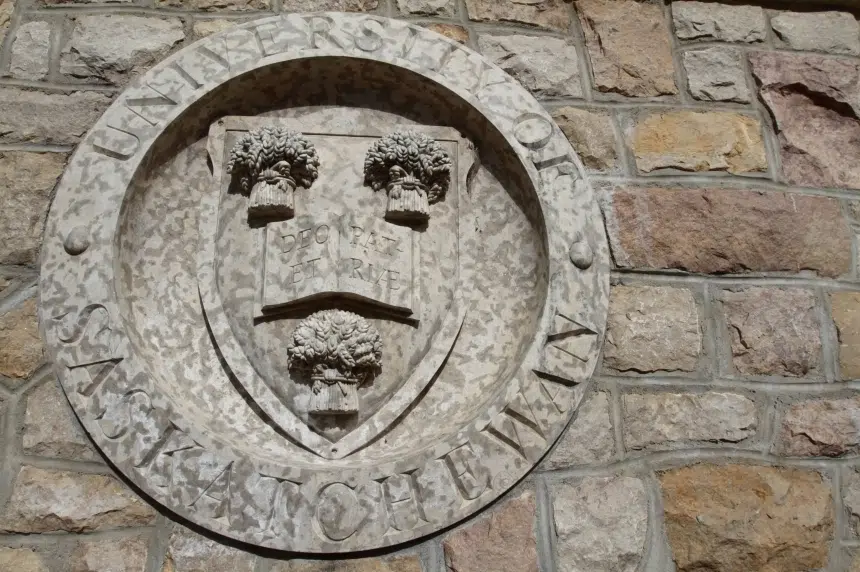A University of Saskatchewan student doesn’t know what her education will look like in the new year, but as of right now, it won’t be in person.
The third-year student said she’s concerned with the university’s policy that all students will have to be fully vaccinated to attend classes in the winter term.
“Whoever is hesitant or doesn’t want to get the vaccine … they’re taking that option away, so the people that still don’t want to get the vaccine, they feel like they don’t have a choice anymore,” she said.
She’s not vaccinated.
“I’m not really hesitant,” she explained. “I feel like that term has been thrown around so much. I’ve already made a decision: I’m not hesitant at all. It’s just a personal choice.”
Until now, the student has been able to attend her classes in person because she has been showing proof of negative COVID-19 tests to the university twice a week. Those tests have been provided by the university at no cost to her.
As of Jan. 4, however, proof of a negative COVID-19 test will not be accepted for students to go to class on campus.
Students will have to provide proof of full vaccination to attend any in-person classes, with the exception being people who cannot be vaccinated under grounds protected under the Saskatchewan Human Rights Code. In that case, proof of a negative COVID-19 test will be allowed.
Anyone who is unvaccinated or choosing to not reveal their vaccination status will not be allowed to work on campus or attend classes in person.
“I’m not even really sure why they took (negative tests) away,” she said. “I think it’s a good option for people … It doesn’t make any sense, personally.”
She said the university seems to be pushing for more in-person classes because students seem to be most interested in getting back on campus. But with few cases of COVID that have come up during the fall semester, she feels the change to the proof-of-vaccination policy is unnecessary.
“I know this is a sensitive subject for a lot of people but we still matter. We shouldn’t be punished for personal choices,” she said.
In a statement, Darcy Marciniuk, chair of the pandemic response and recovery team with the U of S, said full vaccination for the university community is the “clearest and most effective path to beating COVID-19 and its variants.
“We have consulted widely and received expert guidance that affirms that testing protocols are not preventive, but reactive, and are not a substitute for vaccination,” his statement continued.
“The high vaccination rates of our students, faculty, and staff, the mandatory vaccination requirement for the winter term, and our continued adherence to masking will allow the university to move to significantly increased on-campus activities and presence in January. These safety measures are necessary for the continued health and safety of our campus community.”
The university culture around vaccination is very divisive, she said. She thinks most people assume she’s vaccinated because she’s on campus for classes, and doesn’t wish to discuss her vaccination status with most people.
“I know I’m just going to be attacked and they’re going to push me to do something that I don’t want to do,” she said.
Animal bioscience is an agriculture program that meets the requirements to be a prerequisite degree for veterinary studies. The student doesn’t know if she wants to be a veterinarian yet, just that she wants to work with animals.
With her program requiring hands-on classes much of the time, however, she isn’t sure when or how she’ll finish her degree right now. She doesn’t have very many online options for the classes she needs and because of the small size of her program, The student said her professors haven’t been willing to make any accommodations.
“I think that the future looks pretty uncertain …,” she said. “There’s so many people out there that feel the exact same way so at least it makes me feel not alone.”
She said she might postpone her studies for a year while the policy is in place and then reassess her options.
“I’m not really sure where I’m going to go from here,” she said.
Despite her uncertainty, she’s grateful for the support from her family and those close to her.
The student said she would like to see the U of S continue to allow for proof of a negative COVID-19 test a couple of times a week instead of only allowing students who are vaccinated on campus — and she’d be willing to pay for it, too.
“A lot of people don’t understand what it’s like and what we’re going through right now,” she said. “I mean, 97 per cent of the university is vaccinated. There’s (only a) few of us who aren’t vaccinated who are going through this.
“And maybe a lot of (people) don’t have any sympathy or concern for us but my point is that everybody deserves an education no matter their health status.”







